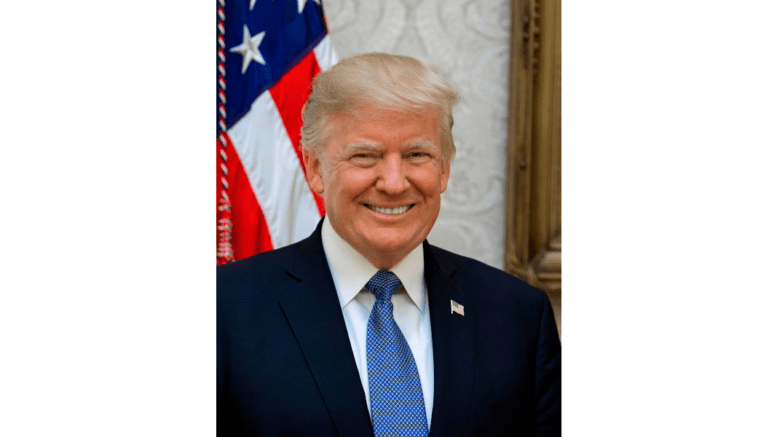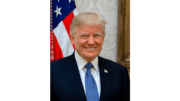by Stanley Dunlap, Georgia Recorder [This article first appeared in the Georgia Recorder, republished with permission]
August 8, 2023
Georgia’s capital city is poised to once again be a major player in Donald Trump’s political aspirations with likely criminal indictments looming in the coming days related to 2020 election interference.
Fulton County Sheriff’s Office is upping its security presence around the downtown Atlanta courthouse through Aug. 18 as District Attorney Fani Willis is expected to present to a grand jury evidence of multiple individuals with ties to the former president allegedly attempting to circumvent Trump’s 2020 presidential election defeat in Georgia to Democratic nominee and former vice president Joe Biden.
Political experts predict that the potential fallout in Fulton County as well as several other pending investigations will dominate national headlines heading into the March primary and a November general election if the current Republican frontrunner emerges from the primary for a rematch against Biden in 2024.
There is a growing chasm between political polarization and public trust in democracy that threatens the integrity of the 2024 election in key states like Georgia, according to Nealin Parker, an executive director of Common Ground USA, part of a Nobel Peace Prize-nominated nonprofit.
Despite the controversies, Trump has maintained a healthy lead in polls over his Republican primary opponents and is in a dead heat with Biden, according to recent national polls. The results of a recent survey illustrates the large political gap, with fewer than half of Americans saying they are confident that votes will be accurately counted in the 2024 presidential election. The AP-NORC Center for Public Affairs Research poll conducted this summer revealed that only 22% of Republicans believe that votes will be counted accurately in the upcoming presidential election compared to 71% of Democrats.
“A product of polarization where people start to push towards their confirmation biases, to want to only hear from people they agree with and then they reaffirm the things that they already know,” said Parker, a lecturer on political polarization at Princeton University. “When they stop being able to understand how anybody could think differently is where it gets scary for somebody like me who has more often worked in countries recovering from war.”
Earlier this summer Willis asked for Fulton judges to keep their court calendars open ahead of historic imminent decisions about whether Trump, closely aligned influential Republican national political figures and other supporters could be hit with criminal counts of racketeering, conspiracy, solicitation or other election-related offenses for conspiring to overturn Trump’s 2020 loss.
Trump has consistently labeled the various investigations as shams that are politically biased motivations aimed at keeping him from earning a second term in the White House. The business mogul and a large number of his supporters continue to baselessly maintain that the 2020 election was stolen from him in Georgia and several other swing states through large-scale ballot harvesting, illegal vote counting and electronic voting machine systems flipping votes.
Those conspiracy theories were repeatedly debunked following investigations run by multiple federal and state election officials, law enforcement and cybersecurity agencies.
Trump’s list of criminal election cases added a third indictment on Aug. 4 when U.S. special counsel Jack Smith handed down four counts related to the Jan. 6 attack on the U.S. Capitol and allegations that Trump illegally attempted to subvert election results and made false statements about results in Arizona, Georgia, Michigan, Nevada, New Mexico, Pennsylvania and Wisconsin, according to the indictment.
Last week, Trump pleaded not guilty to three counts alleging that he mishandled classified documents that were primarily stored at his Mar-a-Lago Club estate in Palm Beach, Florida following guilty pleas to an initial 37 counts in June.
Parker referenced a post-apartheid South Africa and the difficult transition in Chile from an autocratic to a democratic government as optimistic examples that America could learn from in helping bridging the polarized divide in the future.
Also In 1989, many Germans weren’t aware of the massive social and structural changes that were on the horizon even in the weeks leading up to the collapse of the Berlin Wall that for decades had symbolized the Cold War and split Germany in half, Parker added.
“We have a lot of ways that we get to the right what this looks like in (America) but we do have to actively choose a different and less polarized direction, but that can be particularly hard,” she said. I often say the best day to try to depolarize an election is today because every day gets a little bit harder and harder as you move toward a high profile event.”
David Becker, executive director of The Center for Election Innovation and Research, said that despite many downplaying the impact of false claims of rigged elections, there are still lessons being learned in the Trump fallout.
“There are dozens if not hundreds of principled, conservative Republicans out there who are speaking the truth about the election, and acknowledging that if a Democrat did this, it would be just as bad and that should be held accountable,” Becker said.
In early 2022, Willis launched the investigation after the release of a recording of a phone call in which Trump asked Republican Secretary of State Brad Raffensperger to “find” enough votes to change the outcome of the 2020 election.
Several legal analysts predict that a successful prosecution against Trump will depend on whether his request for Raffensperger crossed the legal threshold of soliciting and conspiring to commit election fraud.
In an extensive investigation that began last summer and took place over a period of several months, a special purposes grand jury heard testimony from more than 70 witnesses and reviewed other evidence before issuing a report recommending the district attorney pursue criminal charges against several unnamed individuals who they believed committed perjury.
Among the prominent witnesses who appeared before the grand jury were Trump’s former personal attorney Rudy Giuliani, who in the weeks following the 2020 election promoted conspiracies about election fraud while urging Georgia lawmakers to intervene on Trump’s behalf. Other Trump allies subpoenaed in the case include his former chief of staff Mark Meadows, U.S. Sen. Lindsey Graham, a Republican from South Carolina, and a slate of fake Republican Georgia electors who cast votes in support of Trump.
This post was updated at10:30 a.m. August 8 to correct the number and timing of charges former President Donald Trump pleaded not guilty to since June in connection to his handling of documents at his Florida home.
Georgia Recorder is part of States Newsroom, a network of news bureaus supported by grants and a coalition of donors as a 501c(3) public charity. Georgia Recorder maintains editorial independence. Contact Editor John McCosh for questions: info@georgiarecorder.com. Follow Georgia Recorder on Facebook and Twitter.





